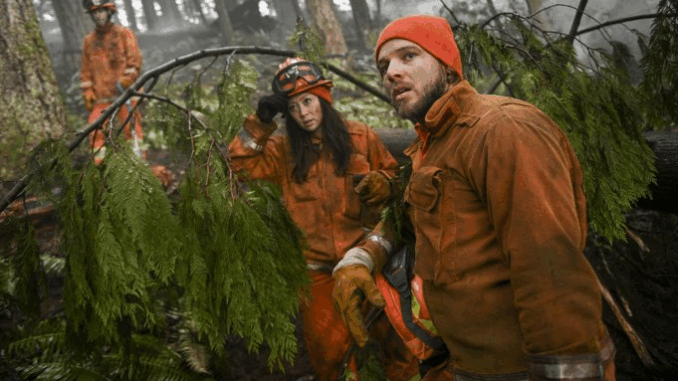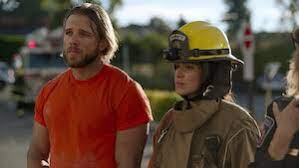
Characters That Mirror National Shifts
Max Thieriot’s characters are more than fictional personas—they are reflections of an evolving American identity. From the suburban paranoia in Bates Motel to the rural resilience of Fire Country, Max brings to life figures who navigate transformation, guilt, and redemption, echoing wider cultural anxieties.
His performances align with a national shift in entertainment: from idealism to realism.
Fire Country and the Redefinition of the American Hero
Bode Donovan, the protagonist of Fire Country, isn’t your typical action hero. He’s flawed, imprisoned, seeking redemption—not saving the world in a cape, but literally digging trenches to stop fires.
Max helped write and produce the show, making Bode a working-class symbol in a time when America is reckoning with systemic injustice and environmental catastrophe.
Complex Masculinity: Emotion Over Ego

Max consistently portrays male characters who feel deeply. Whether it’s Norman’s troubled brother in Bates Motel or Clay’s vulnerable moments in SEAL Team, he rejects toxic masculinity tropes.
He brings nuance to characters who cry, break down, ask for help. In doing so, Max contributes to a cultural conversation about what it means to be a strong man today.
A Quiet Cultural Influence
Max isn’t a loud celebrity, but his roles quietly influence perceptions. Viewers see themselves in his struggles, victories, and even missteps. His characters make space for vulnerability, trauma, and growth—something sorely needed in today’s storytelling.
Conclusion: Thieriot’s Subtle Power
Max Thieriot doesn’t try to be the face of cultural change—but his roles embody it. He doesn’t push boundaries loudly; he expands them naturally, show by show, character by character. And in that subtlety lies his cultural power.
